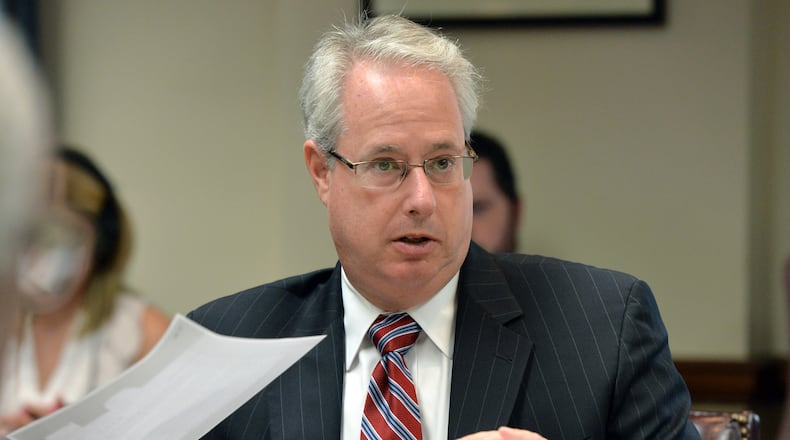A pair of House Democrats contend that Georgia's top lawyer "could cost Georgia taxpayers dearly" by declining to represent Secretary of State Brian Kemp in the lawsuit that exposed the disclosure of confidential information of more than 6 million voters.
State Reps. Scott Holcomb and Taylor Bennett, both of DeKalb, challenged Gov. Nathan Deal's decision to appoint a trio of outside attorneys to represent Kemp's office after Attorney General Sam Olens recused himself.
Olens, who like Kemp is considered a potential Republican candidate for governor in 2018, cited a conflict of interest with the case because his office oversees the state's consumer protection agency.
In a letter sent on Dec. 16 to Olens' office, the two lawmakers said "the basis for this conflict is unclear and raises concerns since Georgia’s taxpayers are on the hook for paying the additional legal fees resulting from your decision to decline representation."
(Kemp has relied on his existing budget to pick up the $395,000 tab for the independent audit into his office's handling of the breach and an estimated $1.2 million for credit monitoring for voters who sign up. The bill for the outside attorneys will come from other state funds.)
Olens responded two days later that it would be inappropriate to discuss the "particular factual basis for my decision" - information that he said was shared with both Kemp and Gov. Nathan Deal's office.
"Suffice it to say that the decision was made out of an abundance of caution, and consistent with my ethical obligations under the rules of the State Bar of Georgia, to avoid an actual or potential legal conflict regarding the handling of the case," he wrote.
The two Democrats aren't satisfied. They responded with a second letter on Wednesday that Olens should be able to explain the conflict without violating attorney-client privilege, and expressed frustration that he wasn't able to provide them "greater transparency" into his view.
"Our concern is that this decision will undoubtedly cost Georgia taxpayers dearly and it is wholly unnecessary," they wrote.
About the Author
The Latest
Featured




